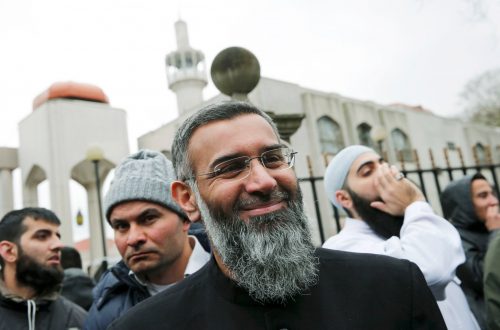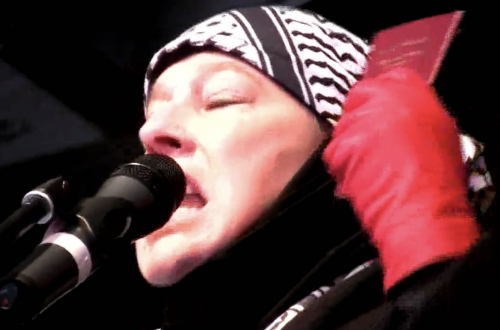This is a Cross Post of an article by Jonathan Russell at Quilliam
the original can be viewed here
I was meant to be in Warsaw, Poland this week for a workshop on Counter-Terrorism and Human Rights, organised by the Organisation for Security and Co-operation in Europe (OSCE), the world’s largest security-oriented intergovernmental organization.
This is a vital topic to discuss and make policy progress on, but a potentially difficult issue to find international agreement on at a supranational level because of disagreements about the definition of terrorism. Nonetheless, I commend the OSCE for having a three day workshop to strive to find such agreement.
For Quilliam, this debate is an important part of our policy research and advocacy work. The question of balancing national security and civil liberties, of pursing effective counter-terrorism operations to prevent immediate threats while upholding necessary human rights red lines, is a key consideration for all countries. The failure to achieve these two things is potentially detrimental to counter-extremism work too, which relies on addressing grievances (rather than exacerbating them) and challenging extremist narratives which seek to exploit said grievances in the radicalisation process. As such, we have repeatedly criticised excessive online surveillance measures, the existence of extra-judicial counter-terrorism practices such as Guantanamo Bay, torture, or extraordinary rendition, and sought to reform measures such as Terrorism Prevention and Investigation Measures (TPIMs), Schedule 7, and Stop and Search.
Human rights are important in counter-extremism and counter-terrorism work, and must be upheld when trying to prevent radicalisation on an individual level, but they are also an important framework for challenging Islamism as an ideology itself. While strategies of Islamist organisations may differ significantly between ISIL jihadists, who use violence or the threat of violence to pursue political change illegally, and Muslim Brotherhood entryists, who aim to expand influence and their ideas by infiltrating institutions or using mainstream platforms legally, groups and individuals across the Islamist spectrum tend to share a disparaging attitude towards human rights.
For example, in the UN’s Universal Declaration of Human Rights (UDHR), Article 18’s commitment to religious freedom is roundly ignored by most Islamists who consider that in the ideal Islamic state, to which they aspire, apostasy is punishable by death. So too is Article 2’s commitment to gender equality, which runs against normalised Islamist notions of women being unequal to men in terms of inheritance, marriage, and countless other functions. We should remember the UDHR arose directly from the experience of fighting fascism in the first half of the 20th century and consider its importance when challenging the latest incarnation of fascism, this one with a pseudo-religious lens.
With this in mind, it is worth considering appropriate partners for an official UN-affiliated organisation like the OSCE that receives funding from 57 governments, each of them also signatories to the UDHR. I believe that a commitment to the human rights enshrined in that charter is an absolute necessity for all partners and for all organisations given a platform at their events.
I was therefore dismayed to read that my fellow attendees at the workshop were to include CAGE, an organisation which claims to campaign for the upholding of human rights in counter-terrorism legislation, a commendable and worthy aim, but which seems to be selective about the human rights they hold dear, as evidenced by the views of the two members it sent to the workshop, Asim Qureshi and Cerie Bullivant, as well as those of other senior members of the organisation. Also invited to participate in the event was an organisation called MEND, which is a rebranding of iEngage, whose predominance in the All Party Parliamentary Group on Islamophobia prompted several MPs to walk out in refusal to work with them.
As Quilliam is a non-governmental organisation, I was happy to share a platform with CAGE and MEND and was keen to hold them to account on their views towards human rights. But part of our work to counter-extremism, and Islamist entryism as part of that, is to urge official bodies not to naively give platforms to groups or individuals who do not uphold human rights. This is even more important when the topic to be discussed is human rights itself, and there is a danger of legitimising an organisation by sharing a platform with or giving a platform to those who refuse to refute ideas and beliefs that are antithetical to the very core of the UDHR. It is one thing to talk to these kind of organisations and debate them, but it is another thing entirely to have them shaping policy at the highest level.
That is not to say that Cage are wrong when it comes to the need to uphold human rights in counter-terrorism, this is something that is well-established and for which I will continue to strive. We must push for the immediate closing of Guantanamo Bay and must pressure our governments to uphold the UDHR’s Article 5 condemnation of “torture [and] cruel, inhuman or degrading treatment or punishment”, but we would be naïve to whitewash other equally important Articles when pushing for this, and must not allow our institutions to be abused by those who do.
Moreover, we must build resilience in sectors and institutions that are susceptible to extremist activity and share best practice with partnering organisations at a supranational level too. The OSCE has inadvertently provided apologists for extremism with a position of influence and a platform that enables them to operate with little scrutiny, and to promote their own values, in opposition, as I have explained, to the human rights values we must all protect.



